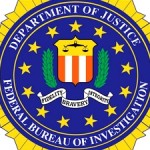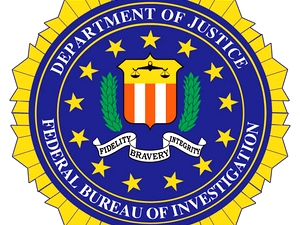 FBI Fights Nigeria’s Advance Fee Fraud (419)…Establishes Internet Crime Complaint Center
FBI Fights Nigeria’s Advance Fee Fraud (419)…Establishes Internet Crime Complaint Center
*Monitors all mails, phone calls from Nigeria * Steps up operations
*EFCC Partners in this war against Cyber/Financial Crimes…increases Undercover Surveillance-INVESTIGATION
* “Letter fraud originating in Nigeria combine the threat of impersonation fraud with a variation of an advance fee scheme…”– Joseph Campbell, Deputy Assistant Director, Criminal Investigative Division, FBI
BY SAMSON SHOAGA/MANAGING EDITOR/NEW YORK
AN end to cyber and financial crimes in Africa’s most populous nation, Nigeria may have come, as Federal Bureau of Investigation in a recent revealing statement in United States made it clear that this fraud scheme relies on convincing a willing victim, who has demonstrated a “propensity for larceny” by responding to the invitation, to send money to the author of the letter in Nigeria in several installments of increasing amounts for a variety of reasons. In ensuring quick apprehension of offenders, it was learnt that Nigeria’s anti-graft agency, Economic and Financial Crimes Commission (EFCC) has stepped up its surveillance in the country.
FBI Position on how it works
Making this revelation, Joseph S. Campbell, Deputy Assistant Director, Criminal Investigative Division, Federal Bureau of Investigation, before the House Committee on Energy and Commerce, Subcommittee on Commerce, Manufacturing, and Trade, Washington, D.C. said: “As you may already be aware, the FBI participates in a number of working groups and task forces dedicated to combating significant frauds against our nation’s citizens. From mortgage and health care fraud task forces to interagency groups such as the Elder Justice Interagency Working Group (EJWG), many of those resources are focused on preventing, detecting, and combating those frauds which harm senior citizens. Unfortunately, though, frauds are limited only to the imagination of those who commit such egregious crimes.
“Most recently, letter fraud originating in Nigeria combine the threat of impersonation fraud with a variation of an advance fee scheme in which correspondence from Nigeria offers the recipient the “opportunity” to share in a percentage of millions of dollars that the author—a self-proclaimed government official—is trying to transfer illegally out of Nigeria. The recipient is encouraged to send information to the author, such as a bank name and account numbers and/or other identifying information using a fax number or e-mail address provided. The scheme relies on convincing a willing victim, who has demonstrated a “propensity for larceny” by responding to the invitation, to send money to the author of the letter in Nigeria in several installments of increasing amounts for a variety of reasons.
Fake Promises for intended ‘victims’
Campbell explained: “Payment of taxes, bribes to government officials, and legal fees are often described in great detail with the promise that all expenses will be reimbursed as soon as the funds are spirited out of Nigeria. In actuality, the millions of dollars do not exist, and the victim eventually ends up with nothing but loss. Once the victim stops sending money, the perpetrators have been known to use the personal information and checks that they received to impersonate the victim, draining bank accounts and credit card balances. While such an invitation impresses most law-abiding citizens as a hoax, millions of dollars in losses are caused by these schemes annually. Some victims have been lured to Nigeria, where they have been imprisoned against their will along with losing large sums of money. The Nigerian government is not sympathetic to victims of these schemes, since the victim actually conspires to remove funds from Nigeria in a manner that is contrary to Nigerian law. The schemes themselves violate section 419 of the Nigerian criminal code, hence the label “419 fraud.
Why FBI Established Internet Crime Complaint Center
His words: “To combat the numerous fraudsters who would do our citizens harm, the Federal Bureau of Investigation and the National White Collar Crime Center (NW3C) established the Internet Crime Complaint Center (IC3).
“The IC3’s mission is to serve as a vehicle to receive, develop, and refer criminal complaints regarding the rapidly expanding arena of cybercrime. The IC3 gives the victims of cybercrime a convenient and easy-to-use reporting mechanism that alerts authorities of suspected criminal or civil violations. The IC3 accepts online Internet crime complaints from either the actual victim or from a third party to the complainant. For law enforcement and regulatory agencies at the federal, state, local, and international level, the IC3 provides a central referral mechanism for complaints involving Internet related crimes. For law enforcement and regulatory agencies at the federal, state, local, and international level, the IC3 provides a central referral mechanism for complaints involving Internet related crimes. As Internet crime complaints are reported online, the IC3 electronically compiles the data. Trained analysts review and research each complaint, disseminating information to the appropriate federal, state, local, or international law enforcement or regulatory agencies for criminal, civil, or administrative action, as appropriate. Significant and supplemental to partnering with law enforcement and regulatory agencies, it will remain a priority objective of the IC3 to establish effective alliances with industry. Such alliances will enable the IC3 to leverage both intelligence and subject matter expert resources, pivotal in identifying and in crafting an aggressive, proactive approach to combating cybercrime.
Naija Standard gathered that since its inception, the IC3 has received complaints crossing the spectrum of cybercrime matters, to include online fraud in its many forms, including intellectual property rights (IPR) matters, computer intrusions (hacking), economic espionage (theft of trade secrets), online extortion, international money laundering, identity theft, and a growing list of Internet-facilitated crimes. Since June 2000, it has become increasingly evident that, regardless of the label placed on a cybercrime matter, the potential for it to overlap with another referred matter is substantial.”
FBI Tracks all mails, EFCC places surveillance in Nigeria
Naija Standard investigation showed that FBI now monitors and tracks all mails, phone calls coming from Nigeria to identify which is fraudulent, while the EFCC has increased its undercover surveillance and stepped up its intelligence security so as to arrest, prosecute offenders in pursuant of its code of conducts.




Internet marketing absolutely no expert, on the other hand imagine you simply produced a fantastic level. An individual obviously determine what you are talking over, and I may actually get behind that. Thank you for staying so advance so truthful.